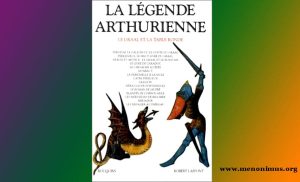Le Roman de la Rose-A Review

Le Roman de la Rose-A Review
Le Roman de la Rose-A Review
Introduction:
“Le Roman de la Rose,” a collaborative masterpiece penned by Guillaume de Lorris and Jean de Meun, stands as a landmark in medieval literature. This allegorical poem, while not adhering to traditional epic norms, emerges as a remarkable exploration of love, courtly ideals, and allegory, weaving together intricate themes and imagery that resonate across centuries.
Historical and Literary Context:
Set in the context of the medieval courtly tradition, ‘Le Roman de la Rose’ reflects the attitudes, values, and social dynamics of its time. The poem’s composition spanned decades, with de Lorris commencing it in the 13th century and de Meun completing it in the 14th century. This collaboration results in a dual narrative, portraying the journey of a young lover through a dream-vision. The two authors’ distinct voices and sensibilities provide a rich contrast that adds depth to the exploration of themes.
Allegory and Symbolism:
At its core, ‘Le Roman de la Rose’ is an allegory, using various symbolic elements to convey deeper meanings. The central image of a rose, representing the object of desire, love, and beauty, is carefully cultivated throughout the poem. The unfolding layers of allegory require readers to decipher hidden meanings, enriching their engagement with the text. Through allegory, the poem becomes a multi-dimensional space where different interpretations and readings are possible, inviting readers to engage actively with the text.
Themes of Love and Courtly Ideals:
The themes of love and courtly ideals are interwoven throughout the poem. The protagonist’s quest to pluck the rose symbolizes his pursuit of courtly love, which is characterized by devotion, chivalry, and spiritual reverence for the beloved. The poem navigates the complexities of this idealized love, addressing its joys, challenges, and illusions. The portrayal of the allegorical characters—such as Bel Accueil, Danger, and Shame—serves as both symbolic representations and moral lessons on love’s intricacies.
Social Commentary and Satire:
The collaborative nature of the poem allows for a multifaceted exploration of societal norms and criticism. De Meun’s continuation introduces a distinct tone, engaging in a broader range of topics, including satire on religious institutions, women, and various social classes. This shift adds a layer of social commentary that extends beyond courtly love, prompting readers to reflect on society’s values and contradictions.
Language and Style:
The language and style of ‘Le Roman de la Rose’ capture the richness of medieval literature. De Lorris’s lyrical and dreamlike descriptions create a sense of enchantment, drawing readers into the allegorical realm. De Meun’s continuation introduces a more didactic tone and a wider range of influences, displaying a mastery of different literary forms and registers. The blend of poetic techniques, including allegorical imagery, dialogue, and introspection, contributes to the poem’s timeless appeal.
Enduring Influence:
‘Le Roman de la Rose’ has left an indelible mark on literature and culture. Its themes and motifs reverberate through subsequent works, influencing writers like Geoffrey Chaucer and Dante Alighieri. Its exploration of love’s complexities and the tension between spiritual and earthly desires continues to resonate with modern readers, inspiring discussions on human nature and relationships.
Conclusion:
‘Le Roman de la Rose’ is an unparalleled masterpiece that transcends the boundaries of time and genre. Through its allegorical journey, it delves into the multifaceted facets of love, courtly ideals, and societal critique. The collaborative effort of Guillaume de Lorris and Jean de Meun results in a textured tapestry of symbolism and meaning, inviting readers to embark on a literary adventure that continues to captivate hearts and minds, even centuries after its creation. 0 0 0
Le Roman de la Rose-A Review
You May Like:
N.B. The article originally belongs to the book entitled ‘Reviews of Epic Literature Around the World‘ by Menonim Menonimus.










